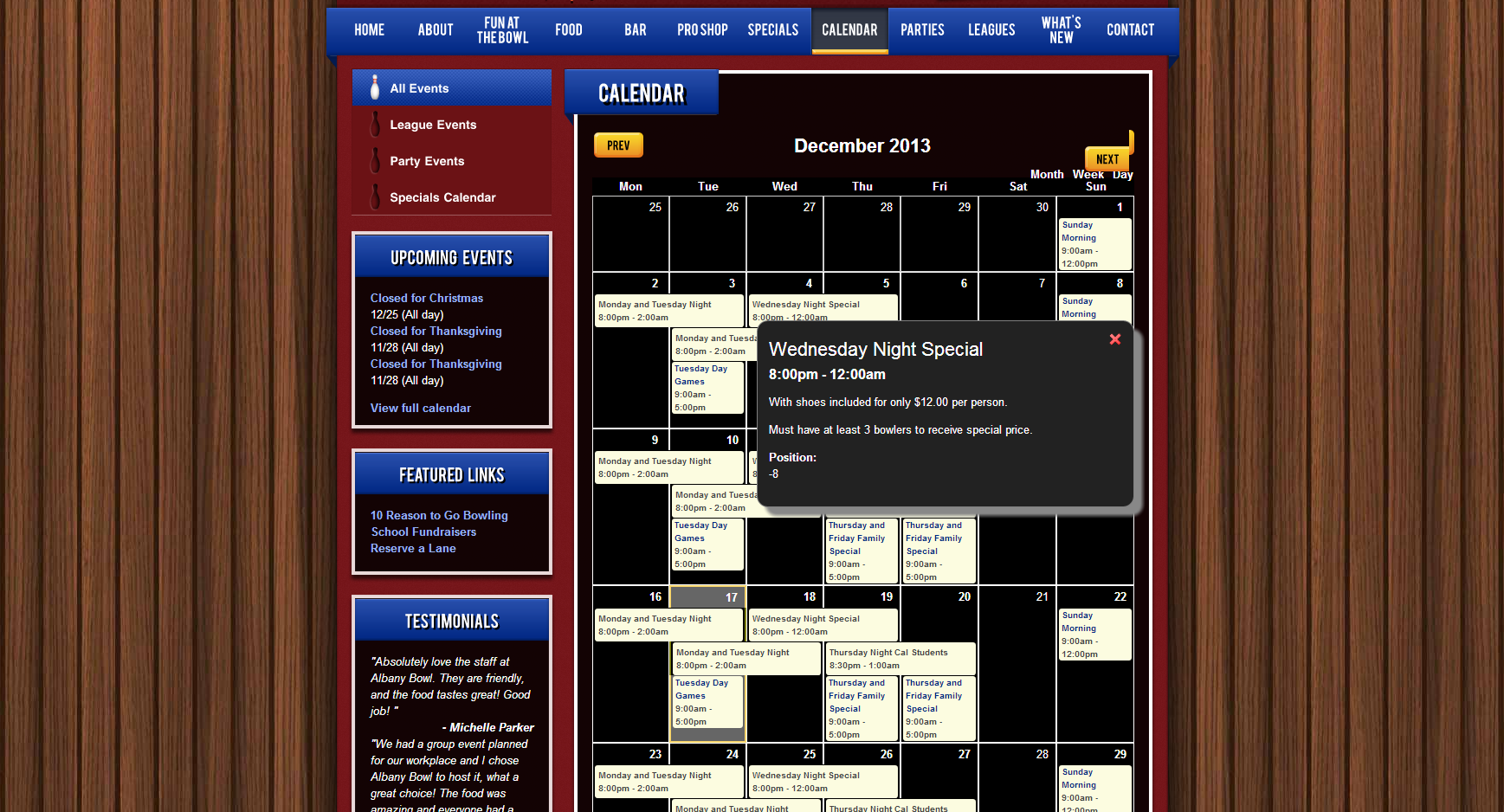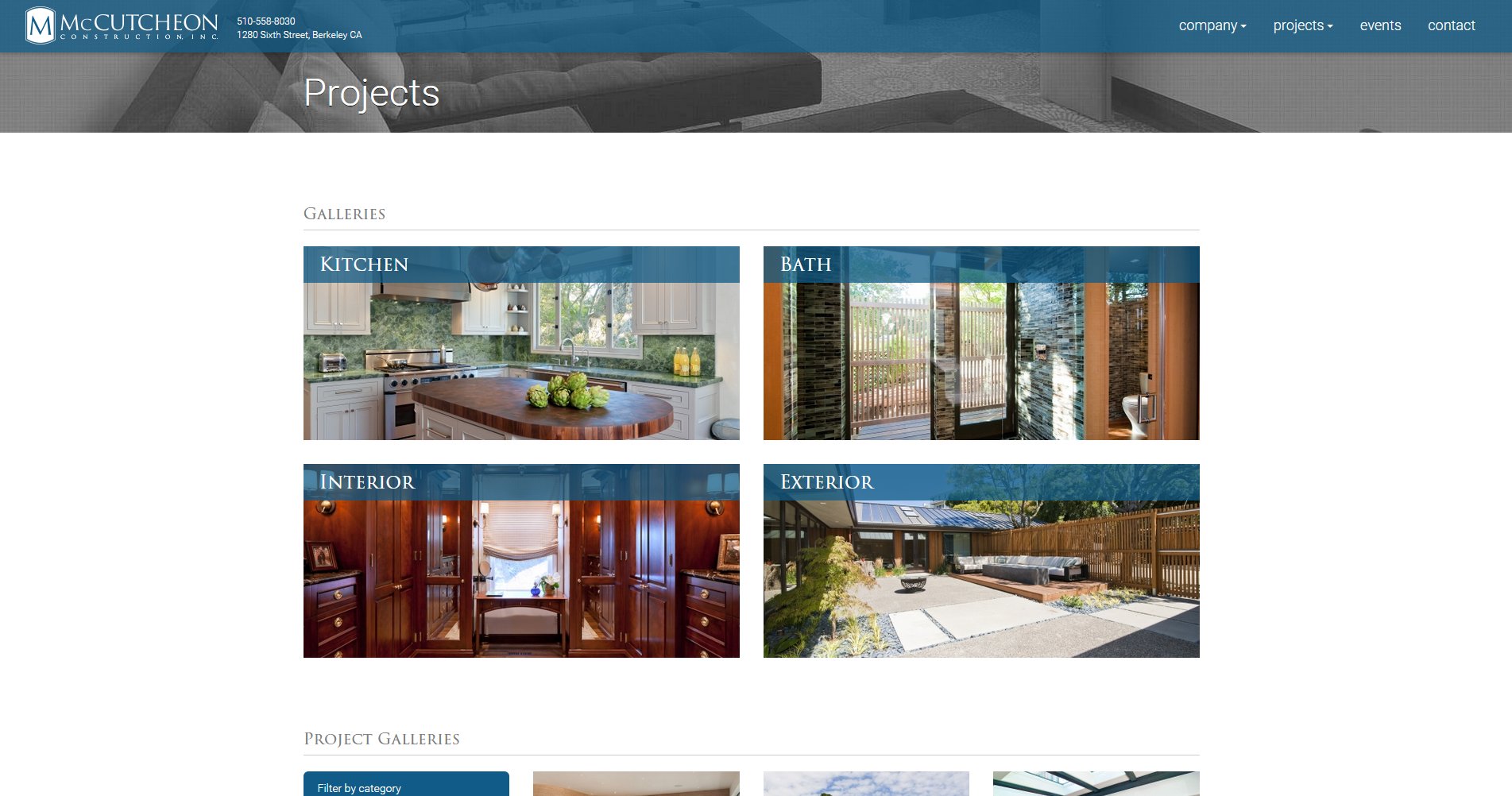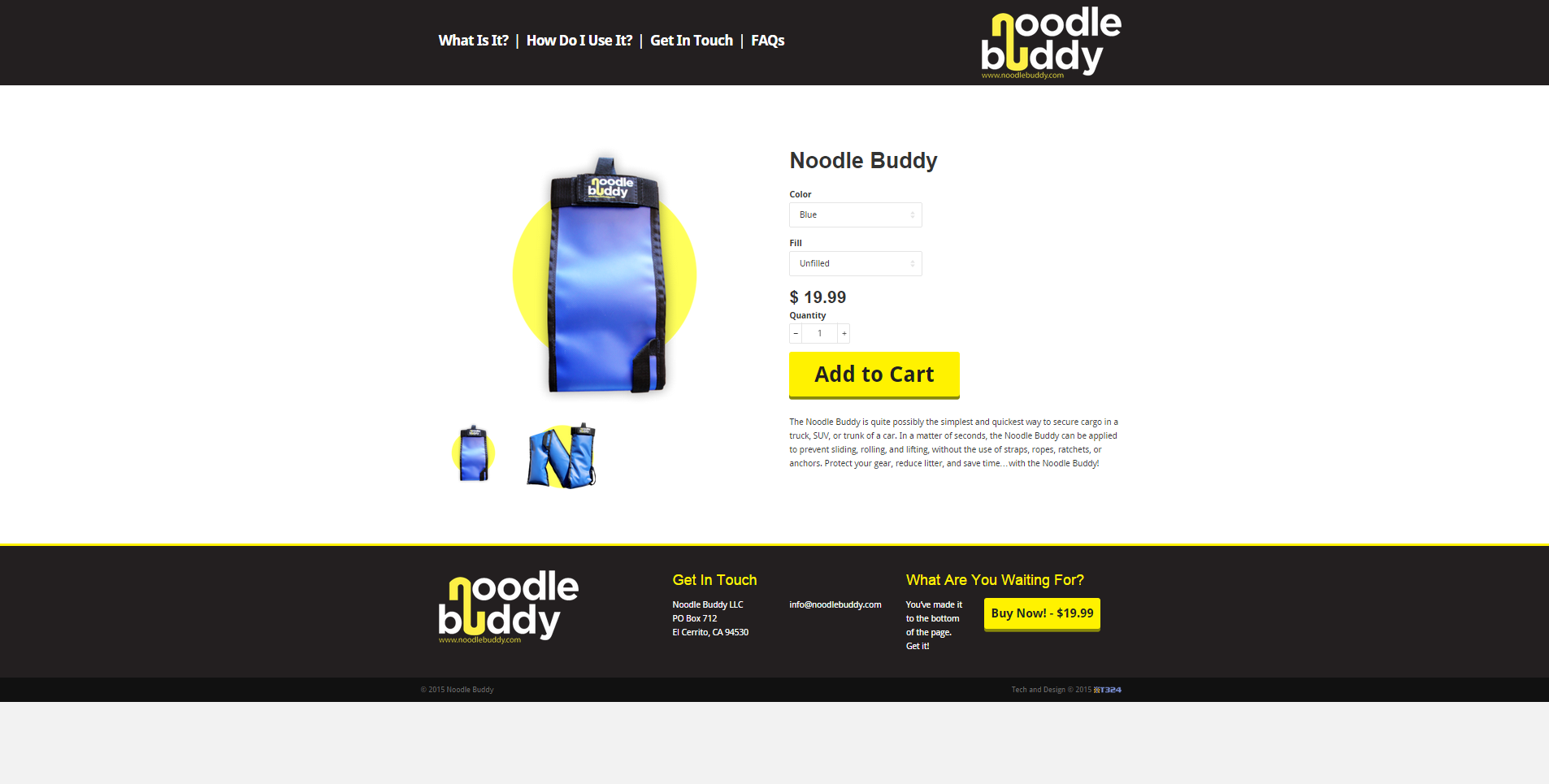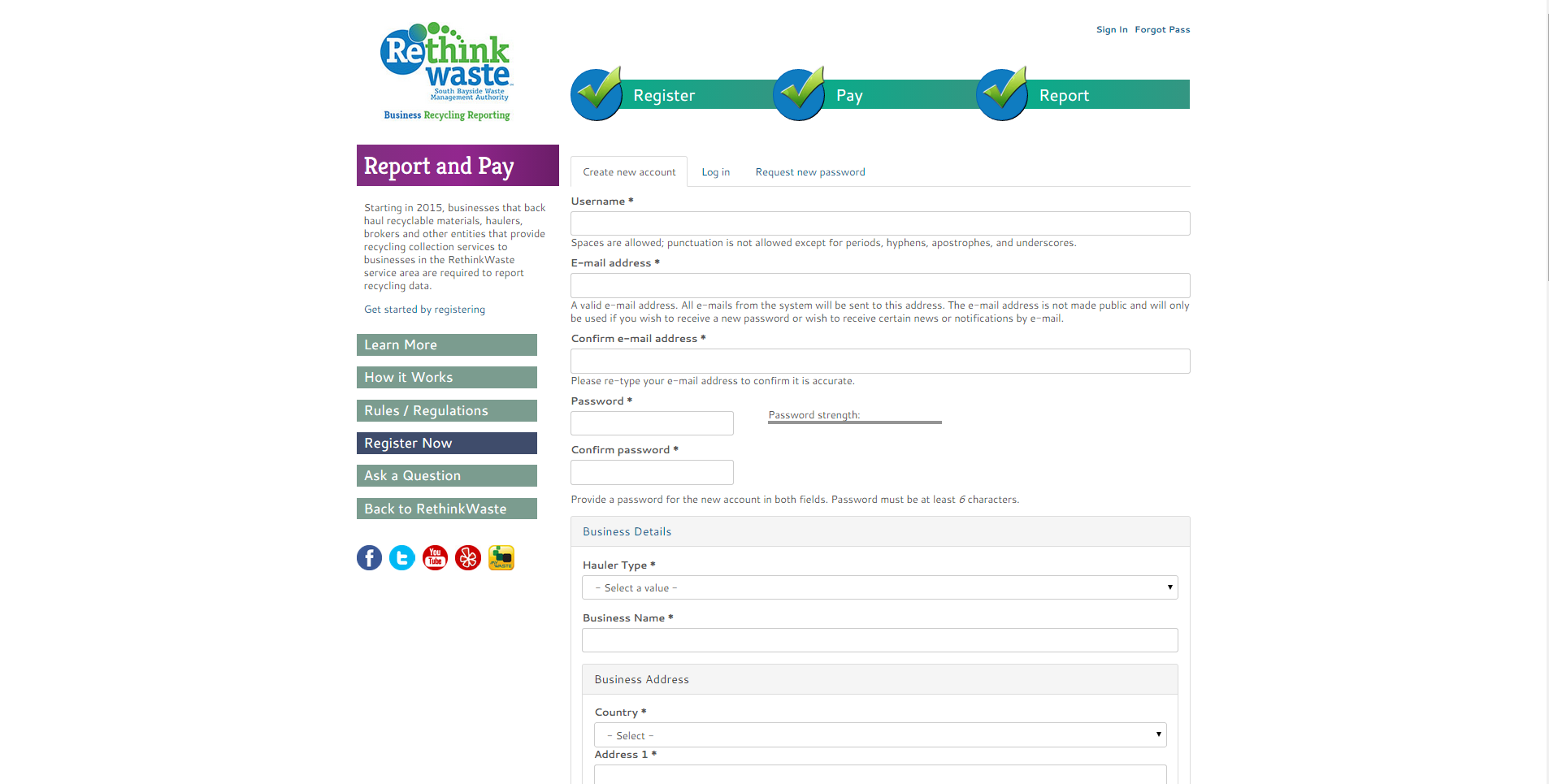![]()
Content Management Systems

Cropping Photos Using CMS
SJND High School (Alameda, CA)
The most consistent thing we hear from clients across the board is that they need to update their website themselves — and it needs to be easy! They don't want to wait for their web developer to get around to making changes (sometimes they wait weeks or even months!) and they don't want to pay by the hour for what is often a simple task.
All of our websites are built on a Content Management System (CMS) that enables self-management. You login over the web and directly make changes to your website — including creating and reorganizing pages, and cropping and optimizing of photos. Depending upon the requirements, time-consuming activities (like optimization of photos) can be automated and the interface for performing routine tasks (such as making blog posts) can be simplified and streamlined.
Complex Information

Calendar Example
Albany Bowl (Albany, CA)
Once you move beyond the generic web page, information can become more complex. Calendars, bios, frequently asked questions, testimonials, and directories are all examples of Complex Information that require the equivalent of website "apps" in order to properly handle them. Every business has different features that are important. They are typically database-driven and build on top of the content management system. They might be dynamic, sortable, or filterable. Sometimes the user interface has elements for searching, rearranging, expanding or collapsing, or displaying different views of the information.
Portfolios & Galleries

Portfolio Example
McCutcheon Construction (Berkeley, CA)
Porfolios and Photo Galleries are typically of importance to construction and manufacturing companies. They feature the projects or products as collections of photos. Sometimes they are categorized or filterable. Often the images are large (full screen) and displayed with a slideshow. And since you are showcasing your work, the details matter. Slideshows should be pausable. Thumbnails should be available to directly go to any image and high-resolution versions of all should be available at a click. Portfolios, in particular, might have a project timeline or before and after shots.
Catalogs & Ecommerce

Ecommerce Example
Noodle Buddy (El Cerrito, CA)
Product companies, such as manufacturers and distributors, often want to offer information about their products online, taking orders and sometimes selling them directly. This typically happens using online Catalogs and Ecommerce. Catalogs present information about different products, sometimes including SKUs, specs, and prices. They are a good supplement or alternative to paper-based catalogs and price lists. Ecommerce can work in conjunction with a catalog of items, and is specifically focused around ordering, payment, and fulfillment.
Ecommerce has become increasingly complicated over time. There can be complex policies related to shipping, discounts, and taxes. There can be public prices and wholesale prices. There can be gift certificates, loyalty programs, ratings and suggestions. And last... integrations with external systems, such as for accounting and email, product search engines, and alternative marketplaces such as Amazon and Ebay. A one size fits all content management system is insufficiently robust for such a diverse set of requirements, and so we use different ecommerce platforms depending upon the specific needs of the client.
Business Processes

Business Process Example
RethinkWaste (San Carlos, CA)
Business Processes are the underlying engine for how business gets done at a particular company or organization. Typically, a Business Process website is a combination of databased information, rules, and automation. These websites can be used for a variety of purposes, from managing an application process, to collecting, summarizing and reporting information, to queing, assigning, and tracking work items. The potential uses are quite diverse, but the purpose tends to be to reduce the cost or increase the quality of a particular service. Often there is a public facing interface, as well as a secure password-protected area that is only accessible to authorized users within a company.
Mobile & Apps

Mobile Website Example
J David Ford Construction
(Oakland, CA)
What browser compatibility was to the last decade, Mobile Compatibility (sometimes called responsive design) and App Development is to this one. It's crucial for a new website to work properly on desktops, tablets, phones, watches, and perhaps one or two more device types still to come (TVs and glasses?) Illustrating how serious this is, Google recently announced that websites that are not mobile friendly will be penalized in their search engine rankings.
We bring together the latest design standards and technology frameworks so that your website will work beautifully everywhere your customers or users are.

